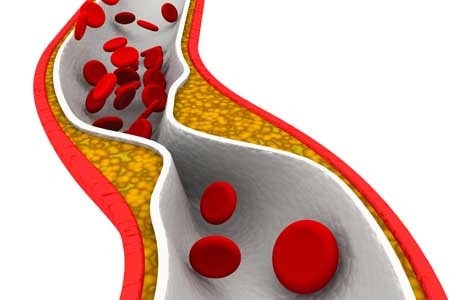Depression and Bipolar Disorder in Adolescence Linked to Early-Onset Cardiovascular Disease and Hardening of the Arteries
The link between mood disorders and cardiovascular illnesses has been clear for some time. Now there is evidence that this link begins early in life. In 2015, the American Heart Association issued a statement that adolescents with major depressive disorder and bipolar disorder are at increased risk for both accelerated atherosclerosis (narrowing and hardening of the arteries) and early-onset cardiovascular disease.
In the statement, the American Heart Association recommended that major depressive disorder and bipolar disorder be classified as “tier II” conditions (which also include HIV and chronic inflammatory disease) that confer a moderate risk of disease.
Until recently, it had been assumed that the increased risk of cardiovascular disease among people with depression or bipolar disorder was a result of behaviors linked to these illnesses, such as higher rates of smoking, obesity, or diabetes, which increases heart disease. Some psychiatric medication can also bring about risk factors for cardiovascular problems. It turns out that these types of factors could not fully explain the increased risk of atherosclerosis and cardiovascular disease among people who had depression or bipolar disorder in their teens.
It is not clear why depression and bipolar disorder make cardiovascular illness more likely, though it may be due to blood vessel damage resulting from inflammation or oxidative stress.
The American Heart Association recommends that pediatricians and cardiologists pay particular attention to this link by identifying and treating mental illness as early as possible and by making sure that their colleagues understand the role of mental illnesses in cardiovascular risk.
Low Vitamin D Levels in Childhood Can Predict Hardening of the Arteries in Adulthood
A new study from Finland suggests that low vitamin D levels in childhood and adolescence can predict atherosclerosis, or hardening of the arteries, in adulthood. The study, by Markus Juonala and colleagues in the Journal of Clinical Endocrinology & Metabolism, included 2,148 people whose vitamin D levels were measured at ages 3–18. They were checked for atherosclerosis at ages 30–45. Those participants with the lowest levels of vitamin D in their youth were at much higher risk for thickened arteries as adults. The finding was independent of other cardiovascular risk factors such as smoking, high blood pressure, poor eating, lack of exercise, and obesity.
Editor’s Note: While it is not yet clear if low vitamin D levels directly cause the development of atherosclerosis, it is important to maintain sufficient vitamin D in childhood for a host of reasons, including strong bones. Children with sufficient vitamin D levels are more likely to have normal moods and behavior than those deficient in vitamin D.



